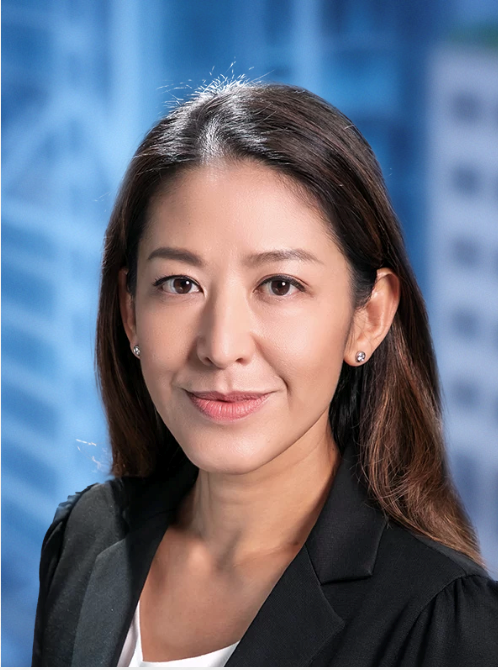
Introduction
According to UNICEF, ‘cyberbullying’ is the bullying of others through digital technologies, which may take place on social media, messaging platforms, gaming platforms, and mobile phones’ Dr. Erin Peebles of Western University cites the following examples of ‘cyberbullying’: harassment (insults or threats), the spreading of rumours, impersonation, outing and trickery (i.e. gaining the victim’s trust and using online media to distribute their secrets), and exclusion (i.e. excluding an individual from activities).
Cyberbullying is particularly pervasive in the Hong Kong Special Administrative Region (‘Hong Kong’). The Organisation for Economic Co-operation and Development’s (OECD) 2015 report on its programme for international student assessment shows that Hong Kong has the highest percentage of students being exposed to bullying among all OECD jurisdictions. In May 2024, the Hong Kong Lutheran Social Services interviewed 777 secondary school students for its report on cyberbullying. Out of the 20% of such participants who stated that they had been cyberbullied, 40% of them stated that they had expressed suicidal ideations as a result.
The legal landscape in Hong Kong
There is no comprehensive legal regime specifically targeting cyberbullying in Hong Kong. Under criminal law, acts of cyberbullying may contravene offences such as ‘criminal intimidation’ under section 24 of the Crimes Ordinance (Cap. 200), ‘criminal damage’ under section 60 of the Crimes Ordinance (Cap. 200), ‘access to computer with criminal or dishonest intent’ under section 161 of the Crimes Ordinance (Cap. 200), and ‘blackmail’ under section 23 of the Theft Ordinance (Cap. 210).
Additionally, cyberbullying may attract civil liability. Intimidation and harassment, intentional infliction of psychological harm, assault (as a tort of trespass to the person), and defamation are some of the possible causes of action.
Recent developments in privacy law
There have been recent developments in the privacy sphere which may address cyberbullying. The Privacy Commissioner for Personal Data, as the city’s independent regulator, oversees the implementation of and compliance with the Personal Data (Privacy) Ordinance (Cap. 486) (‘the Ordinance’). Key data protection principles are enshrined under the Ordinance, including:
- Data Protection Principle 1, which requires the data user to collect only the personal data for a purpose directly related to its function or activity; and collect data as necessary and not excessively, and by lawful and fair means.
- Data Protection Principle 3, which requires that, unless the data subject has given explicit and voluntary consent, personal data can only be used for the purpose for which it was originally collected or a directly related purpose.
More significantly, in October 2021, amendments to the Ordinance criminalising the act of ‘doxxing’ came into force. There are two separate offences for ‘doxxing’ under section 64(3A) and 64(3C), respectively:
- Both offences may be contravened when the defendant discloses any personal data of a data subject without the relevant consent of the data subject, with an intent to cause any specified harm to data subject or any family member of the data subject, or being reckless as to whether any specific harm would be, or would likely be, caused to the subject or any family member of the data subject; and
- The offence under section 64(3C) also stipulates that the disclosure must cause any specified harm to the data subject or any family member of the subject.
The maximum penalties and imprisonment sentences under section 64(3A) and 64(3C) are as follows:
- A person who commits section 64(3A) is liable on conviction to a fine of HK$100,000 (equivalent to around £10,000), and two years’ imprisonment; whereas
- A person who commits section 64(3C) is liable on conviction to a fine of HK$1,000,000 (equivalent to £100,000), and five years’ imprisonment.
Possible reform
The MWYO, a Hong Kong youth-based independent think tank, opines in its 2019 report that the lack of specific legislation on cyberbullying has led to low or poor societal awareness of cyberbullying, and means that schools are not required to report any cyberbullying incidents nor set up prevention programs. The organisation also highlights the lack of coordination in tackling cyberbullying among government departments and bureaux.
Additionally, the MWYO highlights the issues associated with relying on the Ordinance to address cyberbullying: the Ordinance is only intended to govern the collection and use of personal data, and requires victims to file complaints against perpetrators, which is difficult due to the mostly anonymous nature of cyberbullying. Additionally, the Privacy Commissioner for Personal Data is not empowered to dictate that online forum providers and webpage operators remove content that constitutes cyberbullying.
Introducing specific legislation to address traditional bullying and cyberbullying is recommended by the MWYO, so that stakeholders (i.e. schools, teachers, parents, and the public) become more aligned in their understanding of these issues, and enforcement is strengthened by stipulating that the relevant stakeholders must act when cyberbullying is detected. It is also recommended that the following elements be considered when developing such legislation: the statutory definitions of “bullying” and “cyberbullying”; and the school’s duty to set up prevention programmes, handling procedures, and redress mechanisms.
Lastly, the Law Reform Commission of Hong Kong is presently undergoing a study on cyber-dependent crimes and jurisdictional issues. In July 2022, the Commission published its first consultation, which addressed five key cyber-dependent crimes, but did not comment on cyberbullying. More recently, in May 2023, as the Secretary for Education discussed bullying and cyberbullying before the Legislative Council, she cited the Commission’s ongoing study on cybercrime. Moreover, it is worth noting that the Commission’s aforesaid study remains in its infancy. Only time will tell whether the Commission or the relevant stakeholders in Hong Kong will take any meaningful steps in achieving greater justice in cyberbullying.

Catrina Lam SC was Called to the Hong Kong Bar in 1999. She is a member of Des Voeux Chambers and was a former Middle Temple Scholar and has been serving as the Secretary for The Middle Temple Society in Hong Kong since 2009. She was appointed an Honorary Member of the Middle Temple in 2018.

